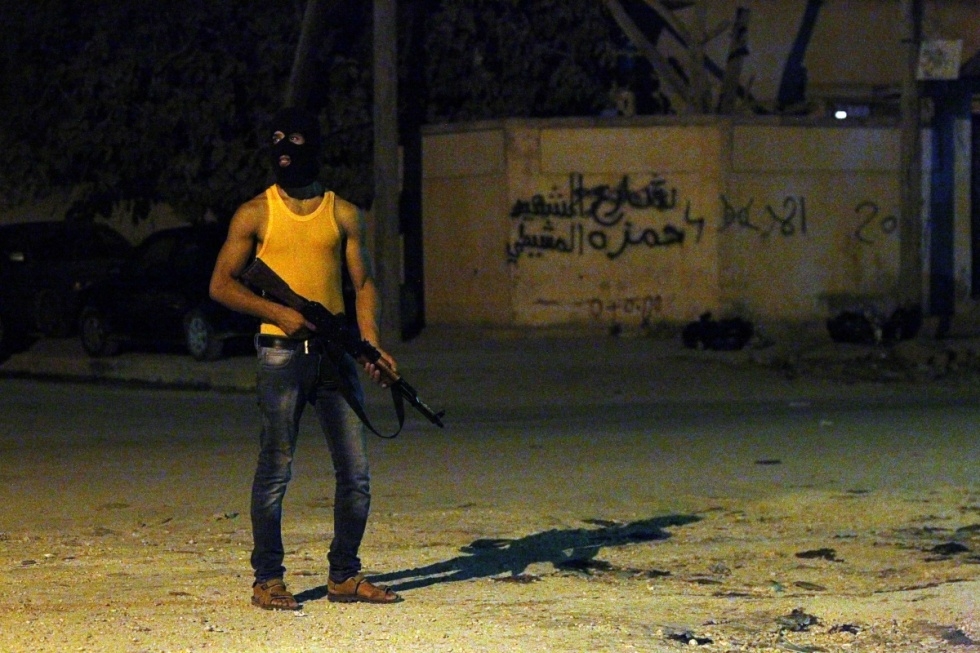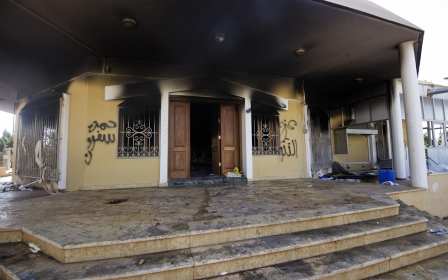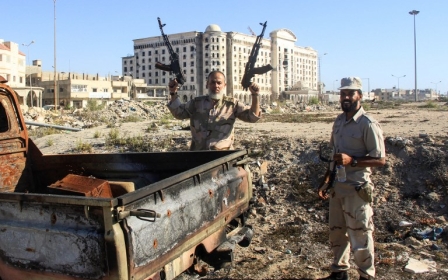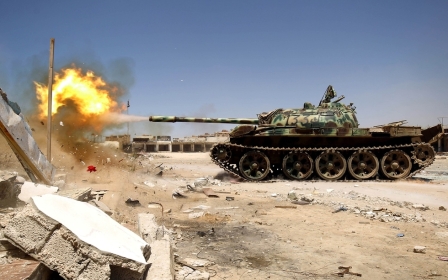US arrests militant suspected of 2012 Benghazi attack

US forces have captured a militant who is believed to have played a role in a 2012 attack on a US diplomatic compound in Benghazi, Libya, that killed US Ambassador Christopher Stevens and three other Americans, a US official said on Monday.
Late on Monday, President Donald Trump identified the suspect as Mustafa al-Imam. He said Imam would face justice in the US.
The attack on the embassy was the topic of numerous congressional hearings, with Republican lawmakers critical of then-secretary of state Hillary Clinton's response to the attack.
Earlier this month, US prosecutors opened their case against the suspected ringleader, Ahmed Abu Khatallah.
Abu Khatallah had been awaiting trial since 2014, when he was captured by a team comprised of US military and FBI officials in Libya and transported on a 13-day journey to the United States aboard a Navy vessel.
In his opening statement, federal prosecutor John Crabb said Abu Khatallah hates America "with a vengeance" and played a leading role in organising the 11 September 2012 attack on the US diplomatic mission in Benghazi.
Abu Khatallah "didn't do the killing by himself," he said. "He didn't light the fires, and he didn't fire the mortars, but you will hear he is just as guilty as the men who lit those fires."
Abu Khatallah, who faces charges including murder and providing material support to terrorists, sat at the table wearing a white shirt and headphones that allowed him to hear an Arabic translation of the proceedings.
Defence attorney Jeffrey Robinson denied that his client had anything to do with the planning of the attack.
Libya slid into turmoil after a NATO-backed uprising that toppled long-time leader Muammar Gaddafi six years ago. It remains divided between loose political and military alliances based in the east and west, resulting in a security vacuum in the centre of the country.
New MEE newsletter: Jerusalem Dispatch
Sign up to get the latest insights and analysis on Israel-Palestine, alongside Turkey Unpacked and other MEE newsletters
Middle East Eye delivers independent and unrivalled coverage and analysis of the Middle East, North Africa and beyond. To learn more about republishing this content and the associated fees, please fill out this form. More about MEE can be found here.




